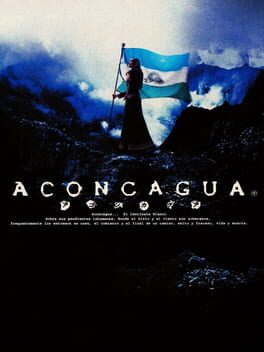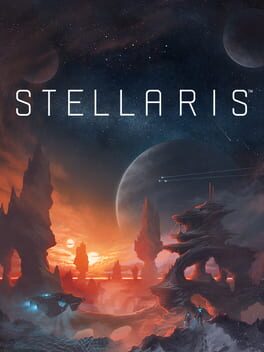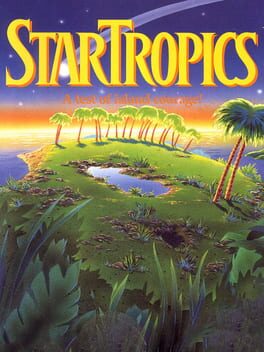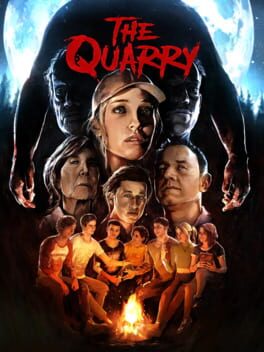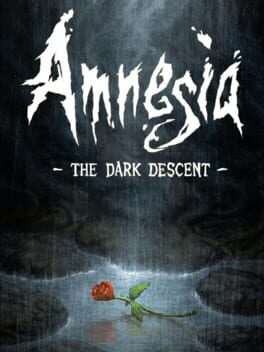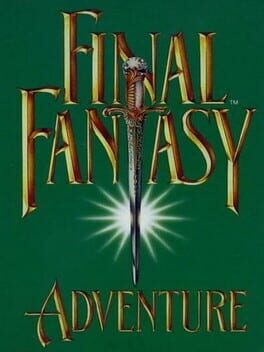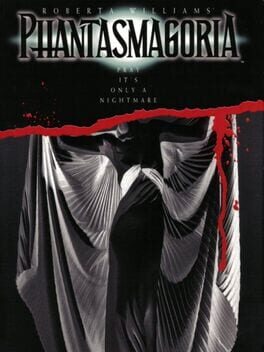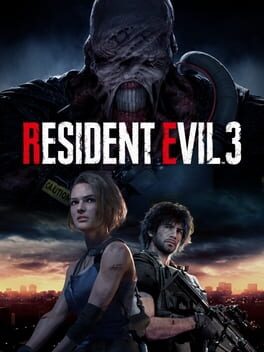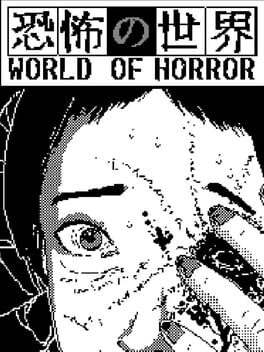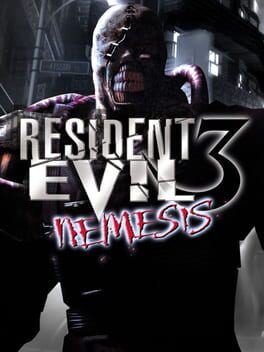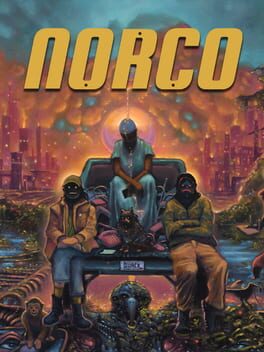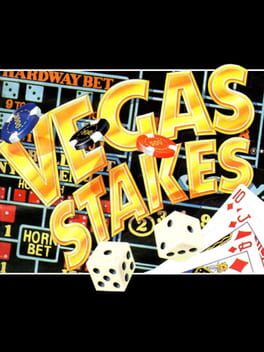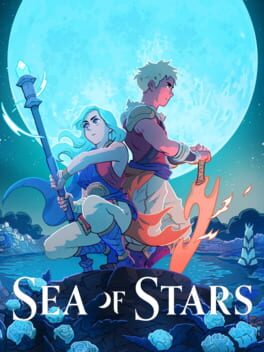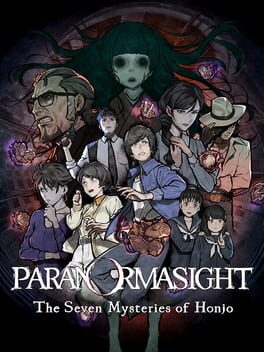epiglottis
2000
Ably emulates the experience of watching a mid-budget action blockbuster, which is mostly a compliment short of the nagging feeling that this had very little reason to be a video game. Shuffling between your characters for brief snippets of conversation is fun, especially as you start to get a bead on their personalities, but the extreme linearity and simple puzzles keep this from feeling like an effective example of the medium. A small portion plated very handsomely.
An extra half-star for the inexplicable placement of a pixelated Sliding Doors poster in the middle of a South American military base (original to prove I'm not insane), which surprised and delighted this gay weeb cinephile of a certain age. Eat yer heart out, Kojima.
An extra half-star for the inexplicable placement of a pixelated Sliding Doors poster in the middle of a South American military base (original to prove I'm not insane), which surprised and delighted this gay weeb cinephile of a certain age. Eat yer heart out, Kojima.
2016
1990
High-spirited adventure game melange. The pan-Pacific Islander flavor complements its other stabs at genre style surprisingly well; it gives a youthful verve and brightness to what might otherwise have felt like an Indiana Jones ripoff. Much can be forgiven if you're on board with the game's sense of whimsy, even the instadeath rooms, up until the needlessly punishing last two chapters.
2022
Why does every... character talk with the... exactsamecadence? Even if these actors had something palatable to offer, the director is clearly unable or unwilling to tease it out of any of them. One egregious example is a character who can lose their hand in one chapter and, after a few minutes of the expected pain and anguish, acts for the rest of the game as if there is nothing wrong with them. Maybe the production didn't have the resources to shoot and incorporate a few takes where this actor gave a recognizably human performance, or maybe they just blew them all on way more important stuff like Ariana Grande licensing fees. It truly isn't worth thinking about for a story so predictable, implausibly mounted, horrifically paced, and derivative of its far better predecessor.
Ryan and Dylan are maybe the two most annoying characters in the Supermassive oeuvre. Gay boys took a catastrophic L on this one. Ryan especially goes from terrible to wretched as the end credits roll and you realize that this brooding maverick is a superfan of the absolute worst podcast ever recorded.
Ryan and Dylan are maybe the two most annoying characters in the Supermassive oeuvre. Gay boys took a catastrophic L on this one. Ryan especially goes from terrible to wretched as the end credits roll and you realize that this brooding maverick is a superfan of the absolute worst podcast ever recorded.
It doesn't take an eagle eye to spot the problems with a Mana game, but Final Fantasy Adventure's flair for the melodramatic - dare I say romantic? - lingers beyond any quibbles with hit detection or inventory management. Between babies abandoned in caves, mysterious lost girls, teardrops with magic powers, and frequent acts of absolute sacrifice, Yoshinori Kitase's first step up to the plate is pulpy and grandiose in a way that hardly seems possible for the Game Boy. The purity of imagination here is almost touching.
1995
Its kitchen-sink approach to horror is occasionally brutal but ultimately silly; it's way more effective as an erotic thriller, a subgenre that rose to popularity at around the same time Roberta Williams's career began to get some traction. Beyond just the sideboob and the harrowing rape, Phantasmagoria's tale of multigenerational domestic abuse fits the erotic thriller's interest in deconstructing the artifice of domestic life, and while its inciting incident is far more fantastical than the likes of Basic Instinct or Body Double, how better to convey artifice than plastering your Real Life FMV Woman protagonist across an array of insane CGI backdrops? Even when the character writing seriously stretches the story's credibility and the acting falls short, the marriage between aesthetic sensibility and thematic preoccupation deftly carries the game home. As someone who finds little intrigue or value in adventure game logic, the relatively simple puzzles are also a huge plus for me.
2024
2020
Takes the few special parts of the original game and throws them out the window without a second thought. The air of obligation, the creeping feeling that this only got made for completionism's sake, is almost sad. Props to whatever character designer got everyone to sign off on "early aughts Rachael Leigh Cook" for Jill though. If you want a real work of art about the pernicious forces of global capital performing experiments on an unwitting public, Josie and the Pussycats (2001) is right there!
2020
Much has been made of this game's debt to Junji Ito; far less its debt to the mechanics and storytelling of Arkham Horror, and if you've ever sat down for more than one session of Arkham Horror, you know that isn't a compliment. The detachment of the repetitive location-based events from each main mystery and the crapshoot RNG are at odds with the aesthetic's attempt at creating an immersive experience. It is a tremendous credit to Panstasz's intricate MS Paint art and the spooky high-energy soundtrack that the game nonetheless remains fresh for as long as it does. For about a month during quarantine, these vibes were juuuuust right.
Three-fourths of the maps here, including the ones in which the boss fights take place, are tight little corridors, presumably an attempt on Capcom's part to encourage the use of the marginally functional dodge mechanic. Combined with the lurching two-second pauses between perspective transitions, Nemesis is often too clumsy to offer any of the lizard-brain satisfaction that this franchise trafficks in. The encounter and level design really hit the skids at the clock tower, which is where they most needed to take off, and the hospital in particular is unbelievably bad; fuck Carlos and fuck getting one-shotted repeatedly by the eight hunters in a row that the game throws at you.
Getting a closer look at Raccoon City is fun, but otherwise it has almost no new ideas about the franchise, its themes, or its aesthetic. As a dry run for Code Veronica and thus RE4, however, it does what it needs to.
Getting a closer look at Raccoon City is fun, but otherwise it has almost no new ideas about the franchise, its themes, or its aesthetic. As a dry run for Code Veronica and thus RE4, however, it does what it needs to.
2022
1993
Balatro whomst? I was thinking a whole lot about this game a couple of weeks ago and then, without any discussion, my brother bought a copy... the morphogenetic field is REAL...
Truly a pointless gameplay experience in 2024 unless you enjoy a dash of RNG atop your RNG, but I can never say no to a Japanese interpretation of Americana, and seeing HAL put their spin on a gaudy shithole like Vegas is a treat. Interesting sliding scale of graphical photorealism that recalls Clock Tower of all things. No way was I ever going to hit the ridiculous 10mil win condition but I tapped out after a cyborg stole half of my money.
Truly a pointless gameplay experience in 2024 unless you enjoy a dash of RNG atop your RNG, but I can never say no to a Japanese interpretation of Americana, and seeing HAL put their spin on a gaudy shithole like Vegas is a treat. Interesting sliding scale of graphical photorealism that recalls Clock Tower of all things. No way was I ever going to hit the ridiculous 10mil win condition but I tapped out after a cyborg stole half of my money.
2023
A few months before this game was released, Yasunori Mitsuda made a blog post saying that he would no longer work with composers outside of his studio. He doesn't mention Sea of Stars explicitly, but considering the feelings he discusses in the post combined with Sabotage's use of his name to promote a game that he only contributed twenty minutes of music to, the experience was likely an alienating one for him. One minute you're a hired hand on a retro RPG, the next you're the linchpin for a set of insurmountable nostalgic expectations.
I lead with this because it's an effective symbol for Sea of Stars' haphazard approach to "borrowing" from its influences. It isn't that Mitsuda's music is better than the rest - although some of the tracks in this are plodding Quest 64 pisstakes that I certainly wouldn't want to be associated with - but that the game tries to staple it and any other homage material onto itself as though the magic will still hold without any kind of context. The fact that the reference exists is paramount; the meaning that the reference supported in its original incarnation is unnecessary. This is most egregious in the empty story, twenty-five hours of plot for plot's sake, and though I won't spoil the game/waste my time belaboring how this fails in its many attempts to emulate Chrono Trigger, I will say that everything from start to finish(es) around Garl is spectacularly mishandled. Expecting me to care about someone named Garl is already an insane ask; making him this insipid and one-dimensional to boot puts the nail in the proverbial coffin.
When the game does step outside of its comfort zone and attempts synthesis or originality, it finds some success. Though I don't love the sickly lighting or the overly busy palettes, this is still an impressive graphical achievement. The first journey across the Sea of Stars gave me a little sensory rush that this medium rarely does anymore. As a mechanical experience, its interesting resource management and strong second act ultimately collapse under its balance issues, shallow growth and equipment progression, and lack of difficulty. The emphasis on combos as a means to round out the tiny movepools falls flat because outside of Mending Light they have no utility beyond breaking an awkward lock. Your best option half of the time is just a supercharged Moonerang anyway, so most combats play out the same way, and boss fights are often too long.
I think this might hit for a young or novice RPG player, but it would also be a shame to start them here when Chrono Trigger et. al. are so much richer and more meaningful. This is mostly just branding-first pay-to-play nostalgia and its rapturous reception will probably look like Kickstarters' remorse after a few years of hindsight.
I lead with this because it's an effective symbol for Sea of Stars' haphazard approach to "borrowing" from its influences. It isn't that Mitsuda's music is better than the rest - although some of the tracks in this are plodding Quest 64 pisstakes that I certainly wouldn't want to be associated with - but that the game tries to staple it and any other homage material onto itself as though the magic will still hold without any kind of context. The fact that the reference exists is paramount; the meaning that the reference supported in its original incarnation is unnecessary. This is most egregious in the empty story, twenty-five hours of plot for plot's sake, and though I won't spoil the game/waste my time belaboring how this fails in its many attempts to emulate Chrono Trigger, I will say that everything from start to finish(es) around Garl is spectacularly mishandled. Expecting me to care about someone named Garl is already an insane ask; making him this insipid and one-dimensional to boot puts the nail in the proverbial coffin.
When the game does step outside of its comfort zone and attempts synthesis or originality, it finds some success. Though I don't love the sickly lighting or the overly busy palettes, this is still an impressive graphical achievement. The first journey across the Sea of Stars gave me a little sensory rush that this medium rarely does anymore. As a mechanical experience, its interesting resource management and strong second act ultimately collapse under its balance issues, shallow growth and equipment progression, and lack of difficulty. The emphasis on combos as a means to round out the tiny movepools falls flat because outside of Mending Light they have no utility beyond breaking an awkward lock. Your best option half of the time is just a supercharged Moonerang anyway, so most combats play out the same way, and boss fights are often too long.
I think this might hit for a young or novice RPG player, but it would also be a shame to start them here when Chrono Trigger et. al. are so much richer and more meaningful. This is mostly just branding-first pay-to-play nostalgia and its rapturous reception will probably look like Kickstarters' remorse after a few years of hindsight.
This must have had an unexpected scheduling or budgetary setback because after the exceptional first couple of hours it nosedives hard into jargon-heavy procedural territory. Once the game hits the daylight section, it brims over with red herrings, underexplored themes, and off-screen endings; it abandons its clever use of 3D perspective and the creeping sense of dread that perspective handily abets; and it tacks the compulsory VN metatextuality onto the ending as if it's embarrassed to even acknowledge it. The characters remain richly written and expressively designed, and you get an interesting feint toward disentangling common cultural mythology as a problem-solving method (think King of Dragon Pass), but when so many of its other ideas fail to even get off the ground, its successes feel accidental. Really disappointing.
